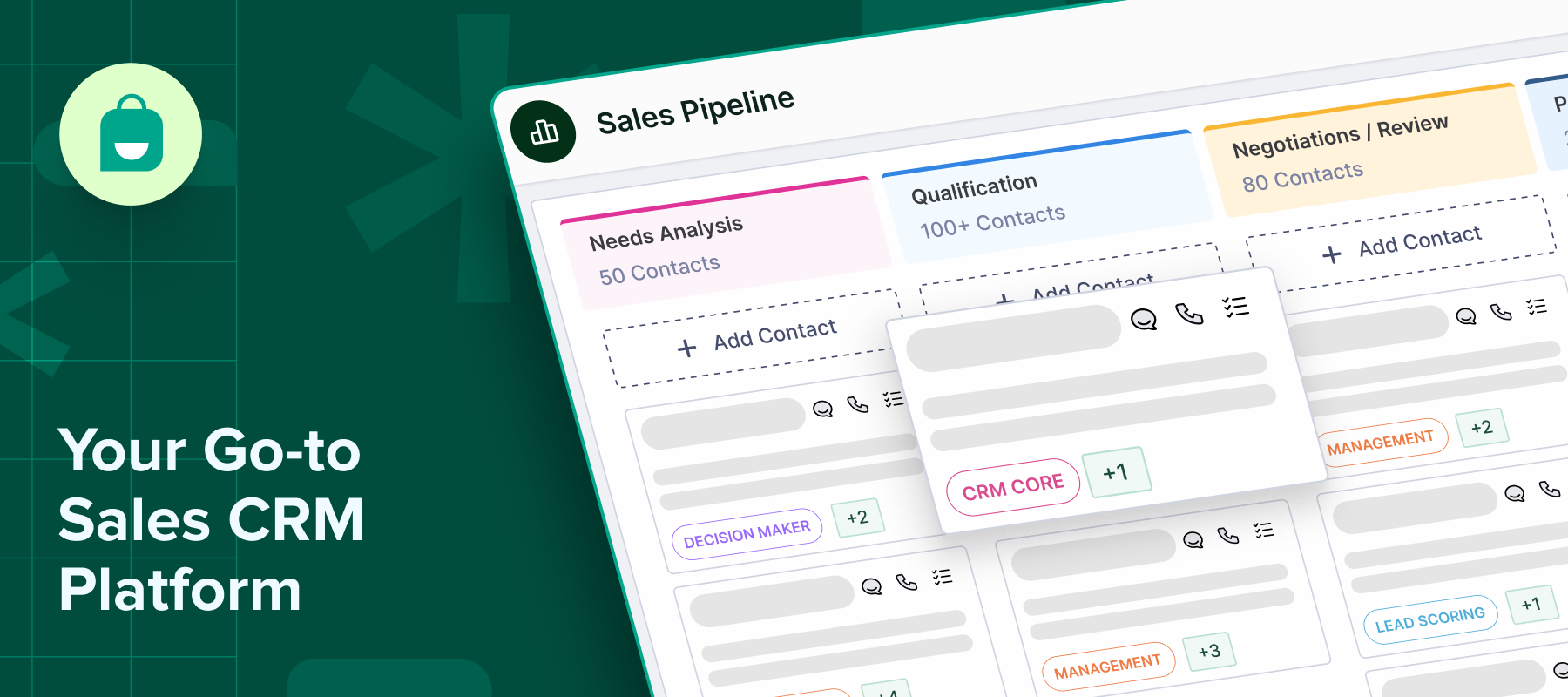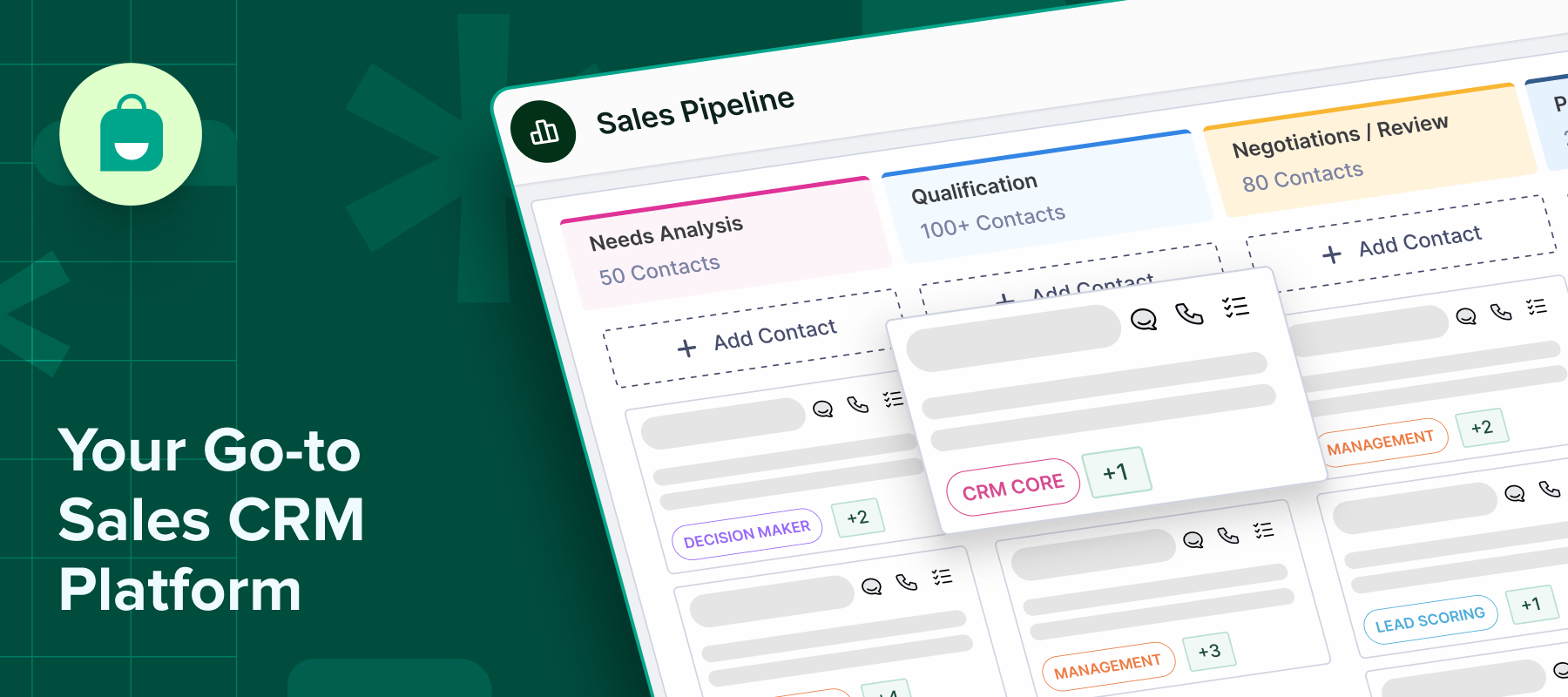WhatsApp has become a core channel for sales communication. Its high engagement and ease of use make it a preferred platform for both sales teams and customers.
However, without a system in place, managing leads and conversations can quickly become unmanageable. WhatsApp alone doesn’t offer the structure to track follow-ups, interactions, or deal stages.
This is where a CRM helps by bringing order to the process, giving businesses the tools to handle WhatsApp conversations with more control and visibility.
In this blog, we’ll walk you through how to use WhatsApp as a Sales CRM tool.
Can WhatsApp Really Function as a CRM?
The regular WhatsApp Business App is great for quick replies and managing a handful of conversations. But when sales operations grow, it quickly shows its limits. It doesn’t support shared access, lead tracking, or connection with a CRM system.
However, these limitations can be addressed with ease by switching to the WhatsApp Business API. It’s built for scale and gives you the tools to manage conversations like a real CRM. With multi-agent access, automation, and seamless integration with your sales stack, you can assign chats, trigger responses, and track every interaction within the app.
Key Features That Make WhatsApp a Powerful CRM Tool
Here are some key features of solutions like Interakt that make WhatsApp a powerful CRM tool:
Contact management
WhatsApp offers a centralized space to store and access all customer interactions. Messages, media, and contact details stay in a single thread, making it easy to maintain context and continuity.
Labeling and segmentation
WhatsApp’s built-in labels help businesses organize chats by customer type, interest, or sales stage. This keeps conversations structured and helps manage multiple leads more efficiently.
Automated responses and quick replies
WhatsApp supports basic automation like greetings, away messages, and quick replies. Paired with tools like Interakt, it enables customizable workflows, allowing for automated lead engagement and faster response times.
Customer support integration
WhatsApp combines sales and support in a single thread. It supports real-time messaging, document sharing, and status updates in one conversation, making it easier to manage customer service without separate platforms.
Broadcasting and bulk messaging
The WhatsApp Business API supports bulk messaging to approved lists. With platforms like Interakt, you can personalize broadcasts at scale while staying compliant and relevant.
How to Set Up WhatsApp as Your CRM System
Here’s how to set up WhatsApp as your CRM system:
1. Choosing between WhatsApp Business App vs. API
The WhatsApp Business App is ideal for small teams handling low-volume chats on a single device. It offers basic tools like labels, quick replies, and a business profile for simple customer interactions.
For growing businesses, the WhatsApp Business API provides more flexibility. It supports multiple users, automation, CRM integration, and bulk messaging, making it better suited for high-volume sales environments.
The app works well as a starting point, but the API is essential if you’re looking to use WhatsApp as your CRM.
2. Integration with CRM platforms and sales tools
Once the WhatsApp Business API is set up, the next step is to integrate it with your existing tools, such as CRM systems, lead forms, calendars, and task managers.
This ensures that all chats sync automatically with contact records, keeping every message, update, and follow-up in one place.
3. Best practices for onboarding your sales team
After integration, the next step is to bring your sales team to the WhatsApp CRM.
Here are some best practices for onboarding your sales team to WhatsApp-based CRM systems:
-Provide clear training on tool usage: Ensure your team is comfortable navigating the platform and understands how it fits into their daily workflow.
-Use templates and quick replies: Use message templates and quick replies to answer common queries and save time.
-Assign responsibilities: Set rules for who handles which leads, and use a shared inbox or assignment system to avoid overlap.
-Monitor performance regularly: Track response times, chat quality, and conversion metrics to identify areas for improvement.
-Create escalation paths: Make sure reps know when and how to involve a manager or support team for faster resolution.
-Encourage feedback: Allow your team to share challenges and suggestions, so you can continuously refine the process.
Benefits of Using WhatsApp as a CRM for Sales
Here are some benefits of using WhatsApp as a CRM for sales:
Higher engagement rates
WhatsApp messages boast an open rate of 98%, far exceeding SMS (19%) and email (20%). This level of engagement gives your sales team a better chance to connect, follow up, and close deals faster.
Instant communication
Over 80% of WhatsApp messages are read within five minutes. This instant reach helps your team respond quickly, reduce delays, and keep conversations moving without friction.
Personalized customer experiences
Around 71% of consumers expect personalized interactions from businesses. WhatsApp makes this easy by allowing you to reference past chats, tailor offers, and build real-time relationships.
Cost-effective customer management
Unlike traditional CRM channels that may require expensive tools or infrastructure, WhatsApp is affordable to set up and operate, especially when scaled using the Business API.
Challenges to Consider When Using WhatsApp as a CRM
Here are some challenges to consider while using WhatsApp as a CRM:
1. Data privacy and security
While WhatsApp offers end-to-end encryption, using it as a CRM introduces risks. Without proper controls, customer data can be exposed across team devices or third-party tools. This puts businesses at risk of non-compliance with data laws and, more importantly, damages customer trust.
2. Scaling communication for larger teams
As message volume grows, the lack of shared access and chat assignment makes coordination difficult. This often results in missed leads, delayed responses, and inconsistent follow-ups, affecting sales performance and customer satisfaction.
Conclusion
As your sales operations grow, managing conversations, tracking leads, and ensuring timely follow-ups becomes increasingly complex.
Manual processes and scattered chats simply can’t keep up at scale. You need a system that brings structure, organizes conversations, tracks every lead, and grows with your team.
This is where Interakt helps businesses by bringing speed, clarity, and control to the entire sales process.







